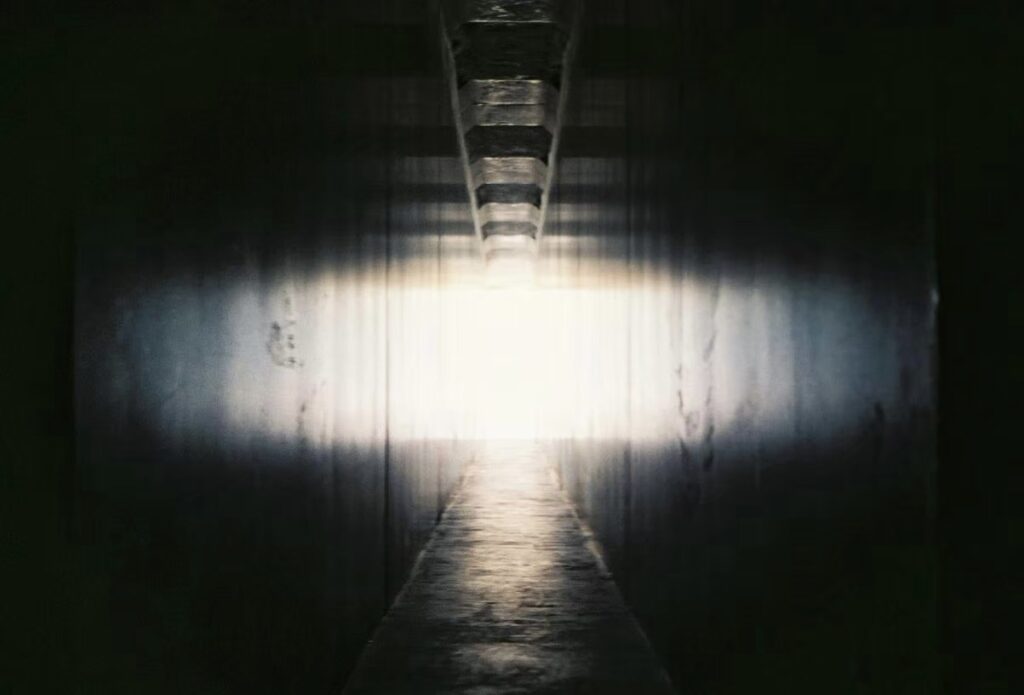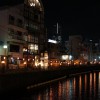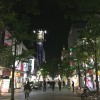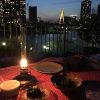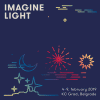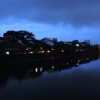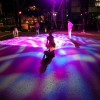Interviewer: Ito Yuki
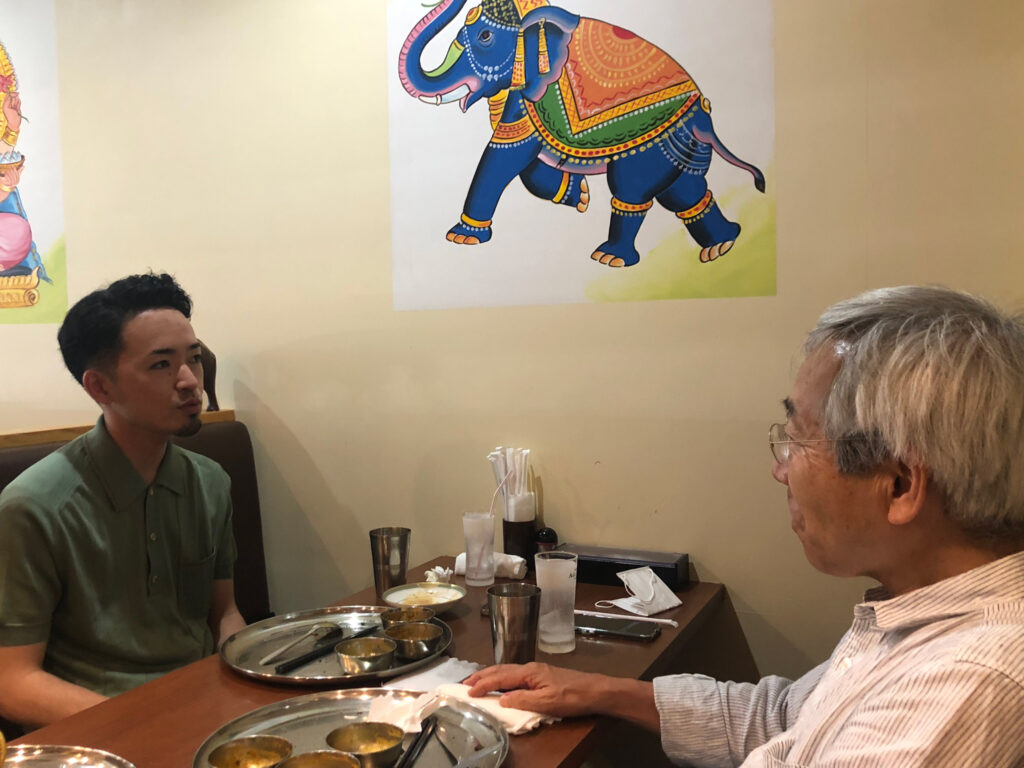
ITO:Today I`d like to discuss the “appeal of dark spaces. ”Dark space is a pretty rough idea. However, I imagine not totally pitch, black spaces, but dark spaces with a softly lit lamp, a level of darkness to feel comfortable and relaxed. Do you have any lasting impressions or experiences with dark spaces?!
MENDE:Memorable dark spaces…hmm…I have so many. It is hard to choose. The level of darkness at a hotel I stayed at in Phuket left a very lasting impression. As a hotel, the level of darkness was unthinkable. I couldn’t even read the menu in the hotel restaurant. However, the interesting thing is, at first, the darkness felt very inconvenient. But as my eyes started to adapt, I gradually got used to the darkness. If I wanted to do some work in this space, it would probably be harmful. But if one is not reading or writing, I felt it was a very comfortable space and level of brightness.
ITO:The fixtures I use in my home have a function to change the level of brightness and color temperature. I usually set the color temperature and brightness at the lowest setting, creating a very dim room. So, I really understand the feeling of relaxation in a dark space.
MENDE: Isn’t such a dark room inconvenient for everyday living?!
ITO:If I want to do some work, yes it is inconvenient. So when I set the lighting low, I can’t really do anything so I usually just end up going to sleep. When I was a kid I remember being really excited about dark spaces, which is a little contradictory to this conversation. For example at amusement parks, I really found the dimly lit queue tunnels leading to attractions very exciting. Do you have any special spaces or memories from childhood?
MENDE: I don’t remember liking dark spaces as a child, at all.
When I was a kid we would go to the countryside near Utsunomiya during the summer. We stayed in an old farm house with a horse stable and Japanese style hearth. Because of the hearth, the inside of the house was black with soot. It didn’t matter what we did or what light we used, inside the house was always dark. I was just a kid, so I remember a level of scariness, as I associated this darkness with ghosts. In this darkness and through the shadows, I probably cherished even a small speck of light. Now that I think about it, this was probably a very important experience for me.
ITO:The younger generations of now don’t have many opportunities to experience this kind of light or darkness that you experienced. So I think there is a generation gap in terms of what the younger generations think is the appeal of light as to what you might think.
One more thing I like about dark spaces is how you feel closer to people. Daily, I am overly-conscious of the way I see people and how others see me, but in the dark this doesn’t seem to matter as much. Maybe because one`s view is limited or others can’t really tell where I am looking. There are probably other reasons, but I just have this vague feeling that we are closer to people in dark spaces. How about you? Do you feel there is a difference in the way we communicate in dark or light spaces?
MENDE:In terms of communication, we probably see too much in brilliant or brightly lit spaces, which may lead to bad communication. In this world, the blind are happy too. Details are hidden and things seem beautiful. Similarly, in dark spaces, instead of relying on our sense of sight, our imaginative powers awaken various feelings inside of us. In this environment, we seem to become more honest about our own positive and negative aspects, leading to more natural expressions of emotion.
ITO:Yes, I also think imaginative power plays a big part in the appeal of dark spaces for me. When I was little I used to play by myself, creating characters in my head and making up a story. I have realized, again, that the behavior “to imagine” is a very important skill for human beings.
MENDE:Now, visually various information comes to use with ease and we seem to be swimming in a sea of information that is constantly raining down on us. With all this information we have no time to think about new things. In dark spaces visual information is minimal, allowing us to be more creative.
ITO:Yes, conversations at night have different content than a conversation over lunch. My memories of dark spaces at amusement parks as a kid, probably aroused my interest in dark spaces as an adult. Maybe because my imagination became more active and I recalled these memories about dark space and lightscapes that were burned into the fabric of my brain.
MENDE:I see. Those dark spaces really made an impression on you.
ITO:Our memories of dark spaces seem to be more memorable. Maybe this is why there seem to be more dark situations in our dreams.
MENDE: I don`t know about that. Maybe your dreams might have more dark spaces.
ITO:Oh, you don’t think so.
MENDE:Even if we are not totally deprived of the sense of sight in dark spaces, I think visual information decreases dramatically, allowing our other senses, such as hearing or touch, to become more polished. We can’t rely on visual information any more and our other senses take over and we sense things that we hadn’t noticed before. Maybe leading to imagination and creativity.







